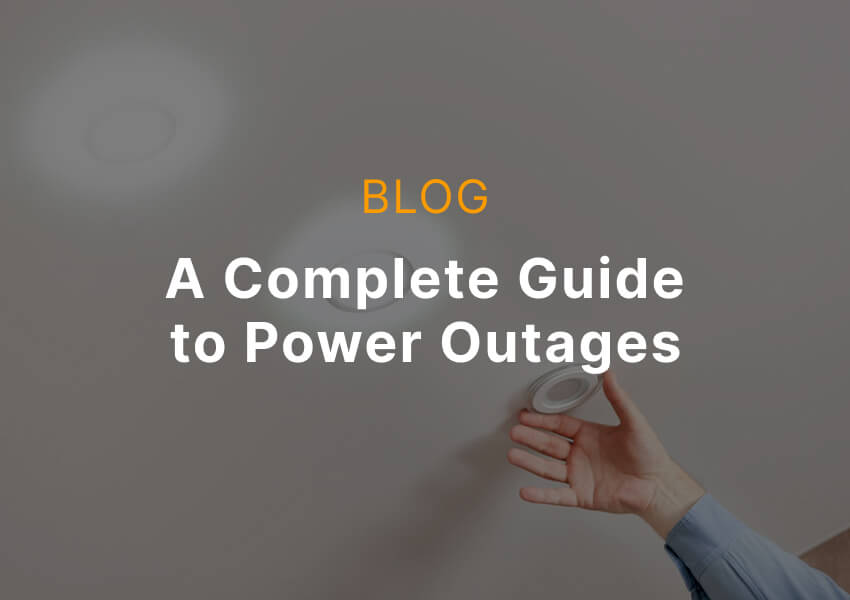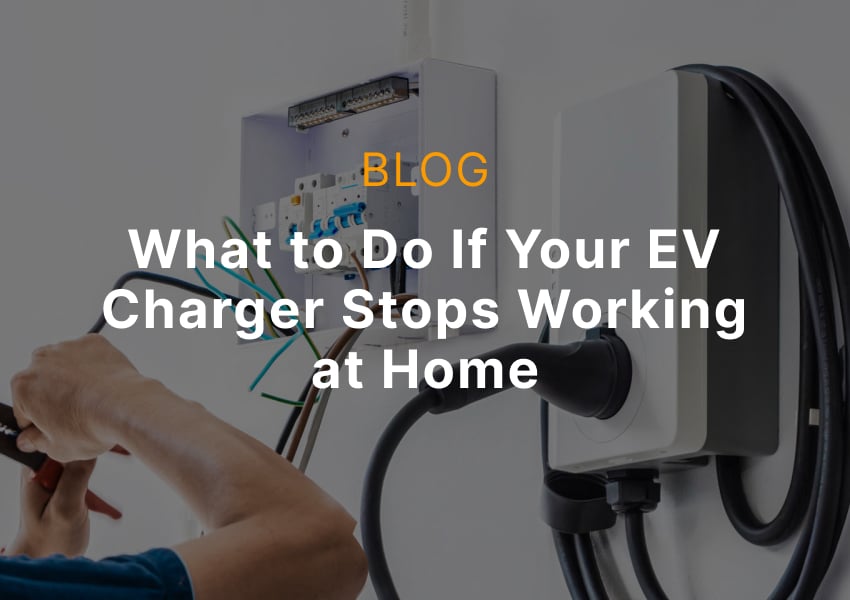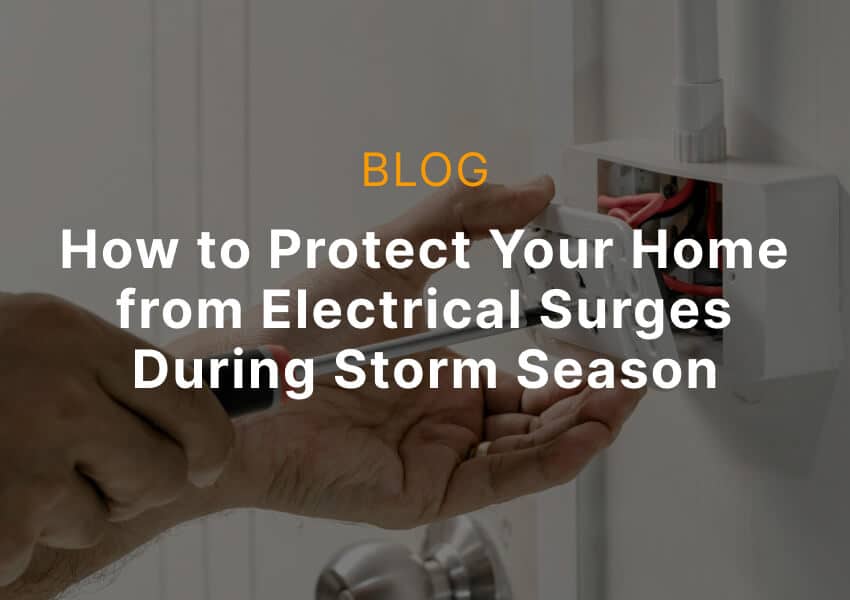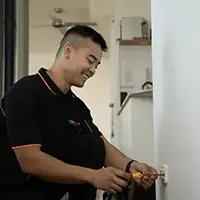A power outage in Australia happens when electricity supply is interrupted, leaving homes and businesses without power. Blackouts are common due to storms, bushfires, and electrical grid faults. Knowing what to do in a power outage helps protect your safety, appliances, and food supply. This guide explains the main causes, safety steps, and preventative measures, so you can prepare for outages and restore power safely when they occur.
What Causes Power Outages in Australia?
Power outages often stem from natural events, infrastructure faults, or household issues. Understanding the causes helps residents and businesses know when to act or call an electrician:
Severe Weather Events
Storms, lightning, and strong winds can damage powerlines and transformers, cutting supply to entire suburbs. These outages are unpredictable but usually fixed by distributors. If your home alone loses power, call a licensed Sydney electrician for urgent fault checks and safe restoration.
Bushfires and Heatwaves
Bushfires damage infrastructure while heatwaves overload the grid with high air conditioning demand. Blackouts may last hours or days. Keep a power outage emergency kit ready and consider backup solutions. Always have damaged wiring inspected by a Sydney emergency electrician before restoring power.
Floods and Heavy Rain
Flooding and heavy rain often cause switchboard faults, submerged substations, or water-damaged wiring. Residents should never touch wet electrical systems. Food safety becomes a concern as fridges shut down. Call a licensed electrician in Sydney before restoring power to confirm your system is safe.
Electrical Grid Faults
When high-voltage lines or substations fail, thousands may be affected. Ausgrid, Endeavour Energy, or Essential Energy manage these faults. Protect appliances by switching them off during outages. Installing surge protection with Powerhub Electrical safeguards against damage once supply is reconnected safely.
Local Household Issues
If neighbours still have power, the issue is likely at your property. Overloaded circuits, faulty wiring, or tripped safety switches require a licensed Sydney electrician. DIY attempts are unsafe and void insurance. Call Powerhub Electrical on 0400 332 331 to restore power safely.
High Demand on Supply
During peak demand, especially summer evenings, the grid may struggle to cope. Rolling blackouts or tripped switches can follow. Reduce consumption, upgrade your switchboard, or add solar and battery storage. Licensed Sydney electricians install surge protection and backup generators to keep homes safe.
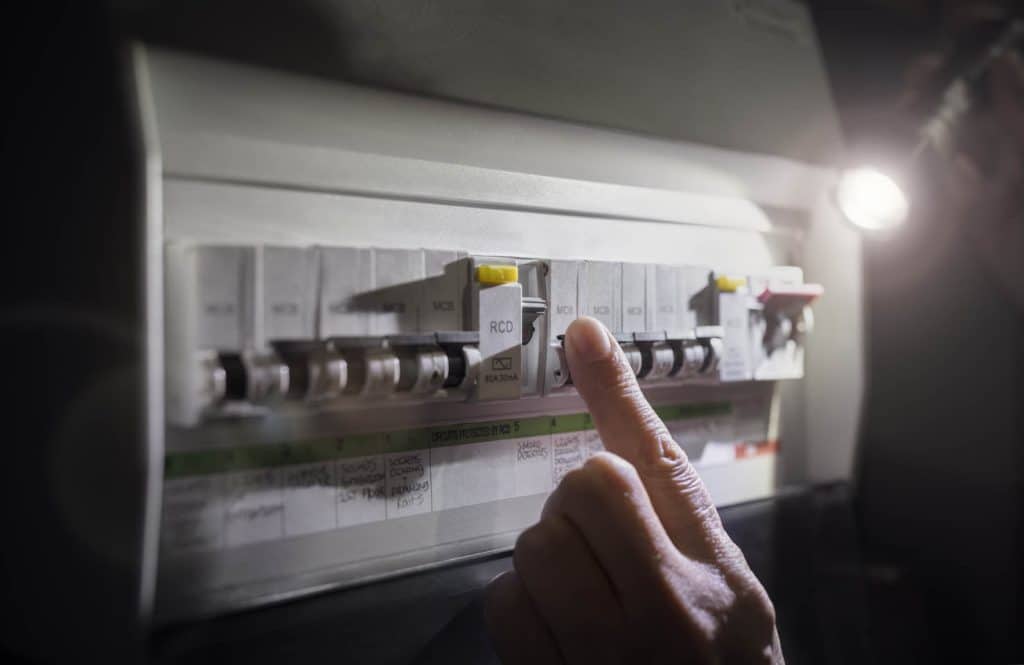
What to Do During a Power Outage
Staying calm and following safety steps protects your household and appliances during a blackout. These actions reduce risk and keep you informed until power is restored:
Immediate Safety Checks
The first step in a power outage is ensuring your family’s safety. Check whether the outage is localised by seeing if neighbours still have power. If the issue is isolated, reset your safety switch. If that fails, call a licensed electrician.
Protecting Appliances
Switch off major appliances like fridges, TVs, and computers to prevent damage when electricity returns. Power surges can destroy sensitive equipment. Surge protection devices are a worthwhile investment to avoid costly repairs after an outage.
Communication and Updates
Keep a battery-powered radio, mobile charger, or power bank handy. Check Ausgrid, Endeavour Energy, or Essential Energy’s outage maps for updates. Knowing estimated restoration times helps you plan meals, travel, and medical needs.
Supporting Vulnerable People
Check on elderly relatives, children, or anyone who relies on medical equipment. Blackouts can pose serious risks to vulnerable people. Consider backup battery systems or generators to ensure essential medical devices remain operational.
Food and Water Safety
Fridges and freezers can only keep food safe for a limited time. Avoid opening doors unnecessarily. If the outage lasts longer than four hours, perishable food should be discarded. Have bottled water and non-perishable items in your power outage emergency kit.
Avoiding Electrical Hazards
Never touch fallen powerlines or attempt DIY electrical repairs during a blackout. Water and damaged wires are a deadly combination. Leave all fault finding to professionals and call 000 if there’s immediate danger.
Understanding Your Local Power Provider
Knowing which electricity distributor services your area helps you access accurate outage information, report issues quickly, and understand who is responsible for restoring power during blackouts:
Ausgrid coverage and updates: Covers Sydney, Central Coast, and Hunter regions. Customers can use the Ausgrid outage map, sign up for SMS alerts, and check estimated restoration times to plan around blackouts.
Endeavour Energy blackout alerts: Services Western Sydney, Illawarra, and South Coast. Their website and app provide outage maps, safety advice, and real-time alerts, helping residents stay informed before contacting electricians unnecessarily.
Essential Energy in rural NSW: Supplies regional and remote communities across most of NSW. Outage restoration can take longer in rural areas due to distance and weather. Essential Energy offers online updates and 24/7 emergency contacts.
Finding and contacting your provider: Many people confuse retailers (billing companies) with distributors (responsible for the grid). Customers should know their local distributor’s hotline to report blackouts or hazards directly.
Reporting local faults and hazards: Always report fallen powerlines, sparking transformers, or damaged poles immediately. Use provider hotlines for faults, and call emergency services (000) if there’s danger to life or property.
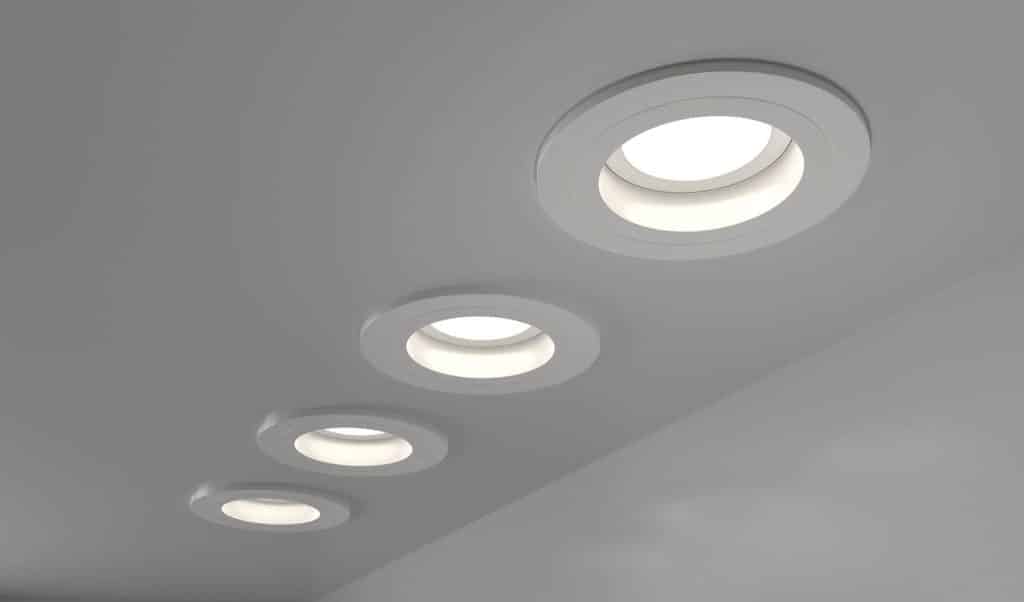
How to Prepare for Future Power Outages
Preparation ensures comfort and safety during outages. Creating an emergency plan and investing in preventative measures reduces stress and keeps your home or business protected:
Building an Emergency Kit
Prepare a power outage emergency kit with flashlights, batteries, bottled water, non-perishable food, first aid supplies, and portable chargers. This ensures your household can function safely until power is restored.
Installing Surge Protection
Surge protection devices safeguard sensitive appliances from voltage spikes when electricity returns. Licensed electricians in Sydney can install these devices on your switchboard to reduce the risk of fires and costly equipment damage.
Investing in Backup Generators
Backup generators keep essential appliances running during extended outages. From portable units to larger standby systems, they provide reliable temporary power. A licensed electrician ensures proper installation and safe operation of backup generator systems.
Solar and Battery Storage
Solar panels paired with battery storage give homes independence from the grid. During blackouts, batteries supply stored energy to keep lights, fridges, and essential devices working. This long-term solution also reduces electricity bills.
Protecting Sensitive Equipment
Computers, medical devices, and entertainment systems are vulnerable during blackouts. Surge protection and uninterruptible power supply (UPS) systems help prevent data loss, equipment damage, and disruption to critical functions during short or extended outages.
Family or Business Contingency Plans
Have a clear plan for your household or business. Decide who is responsible for updates, food, and contacting providers. Businesses should plan for backup power to avoid downtime and protect stock.
When to Call a Licensed Electrician
Not all outages are caused by the power grid. Some require urgent inspection and repair by a licensed electrician to restore safety and supply:
Identifying Electrical Faults
If only your property has lost power, the cause may be an internal wiring fault, tripped circuit, or damaged switchboard. These issues require immediate inspection by a licensed electrician.
Restoring Power Safely
Attempting DIY electrical repairs is dangerous and illegal. Licensed electricians can identify the cause of a blackout, test circuits, and restore power safely without creating further risks to your property.
Repairs After Storm Damage
Storms often leave behind damaged wiring, flooded switchboards, or broken connections. An emergency electrician in Sydney can repair these quickly to restore safety and prevent further hazards from hidden electrical faults.
Upgrading Old Switchboards
Older fuse boxes often fail during outages, increasing fire risks. A switchboard upgrade by Powerhub Electrical ensures your home meets Australian Standards and has modern safety switches to prevent future blackouts.
Installing Preventative Solutions
Licensed electricians can install surge protection, backup generators, and battery systems to prepare for future blackouts. These measures keep your home safe and reduce the inconvenience of long-term outages.
Emergency Electrician Services in Sydney
When blackouts are caused by faults within your property, only a licensed emergency electrician can help. Powerhub Electrical provides 24/7 emergency services across Sydney, restoring power quickly and safely. Call 0400 332 331 for urgent help.
Stay Safe and Call the Professionals at Powerhub Electrical
Power outages in Australia are often caused by storms, bushfires, floods, or grid faults, but some issues start within your own property. Following power outage safety steps, preparing an emergency kit, and installing preventative measures helps protect your family and appliances. For electrical faults, always trust a licensed professional.
Powerhub Electrical offers reliable emergency electrician services across Sydney, including switchboard upgrades, surge protection, and backup power solutions. Call 0400 332 331 today to restore power safely, protect your home, and prepare for future outages.

